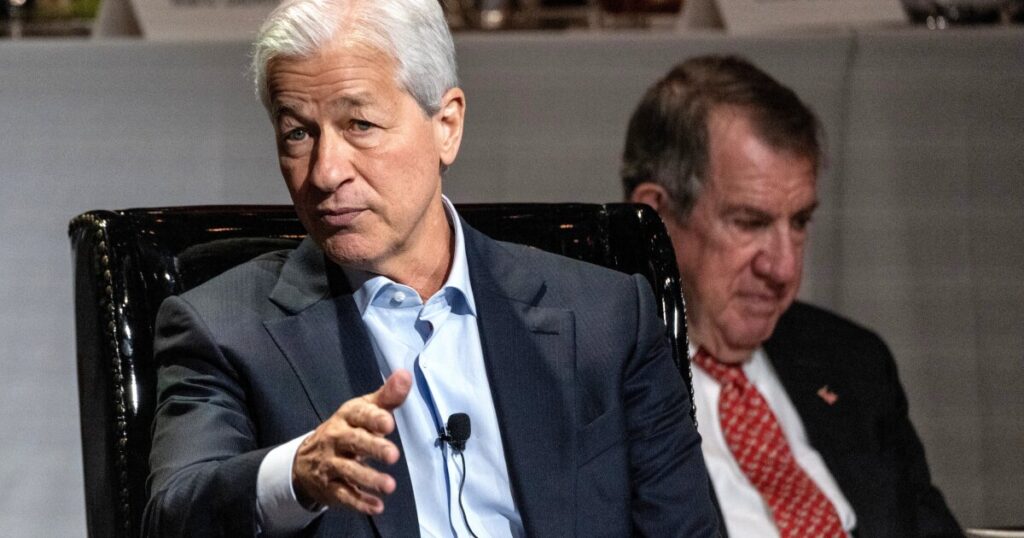Victor J. Blue/Bloomberg
The longtime leader of the country’s largest bank said he wanted better relations between business leaders and regulators, but he also took aim at the proposed Basel III endgame rules, barriers to mergers and bureaucratic burdens. And he remained coy about whether he is interested in a future government post.
“I would love to have a more productive relationship with regulators, but I think that requires a conversation,” Dimon said. “I think we’re kind of through the mirror at this point.”
Dimon said there are legitimate problems that need to be solved in the banking system, but not enough thought is put into what regulators are trying to achieve with different rules. He cited the example of the migration of mortgages to non-bank lenders, arguing that the trend has sharply reduced the number of mortgages available to low-income households.
He also said that improved supervision by regulators has made things more difficult for smaller banks. He compared their scarce resources to the $2 billion they had before
Some of Dimon’s doubts relate to what he sees as a dissonance between society’s problems – such as the need for better education, upskilling the workforce and expanding access to homeownership – and the regulations being put in place.
“I would like to see more cooperation between government and industry regulators,” Dimon said. “I think we are missing a lot of opportunities to help children get an education, get jobs and improve parts of society. If you look at government in America, you have fewer and fewer practitioners at the table. This applies to supervisors, this applies to members of the cabinet, but also to people within the government.”
As for last spring’s turmoil, when Silicon Valley Bank, Signature Bank and First Republic Bank all collapsed, Dimon blamed both the banks and their regulators.
“I don’t know how these things happen, and I blame the banks,” Dimon said. “I think the regulators should blame themselves too, but I blame the banks, the CEOs for the most part and the management teams.”
The “mini banking crisis” is likely over as long as interest rates don’t rise and trigger a recession, Dimon added.
“Obviously, if you’re a bank with interest rate risk and you haven’t protected yourself, you can get hurt,” he said. “And it’s obviously going to have an impact on real estate, and so you could get kind of a double triple whammy that hits some banks.”
Dimon, who has been relatively gloomy about the U.S. economic outlook of late, said Tuesday that he is cautiously anticipating a soft economic landing. He added that even if there is a recession, the American consumer is wealthier and better off than before.
When asked if taking a position in government is a real possibility for him, the 68-year-old CEO joked: “I’ve always said I would like to be president, but you would have to anoint me, people. “


